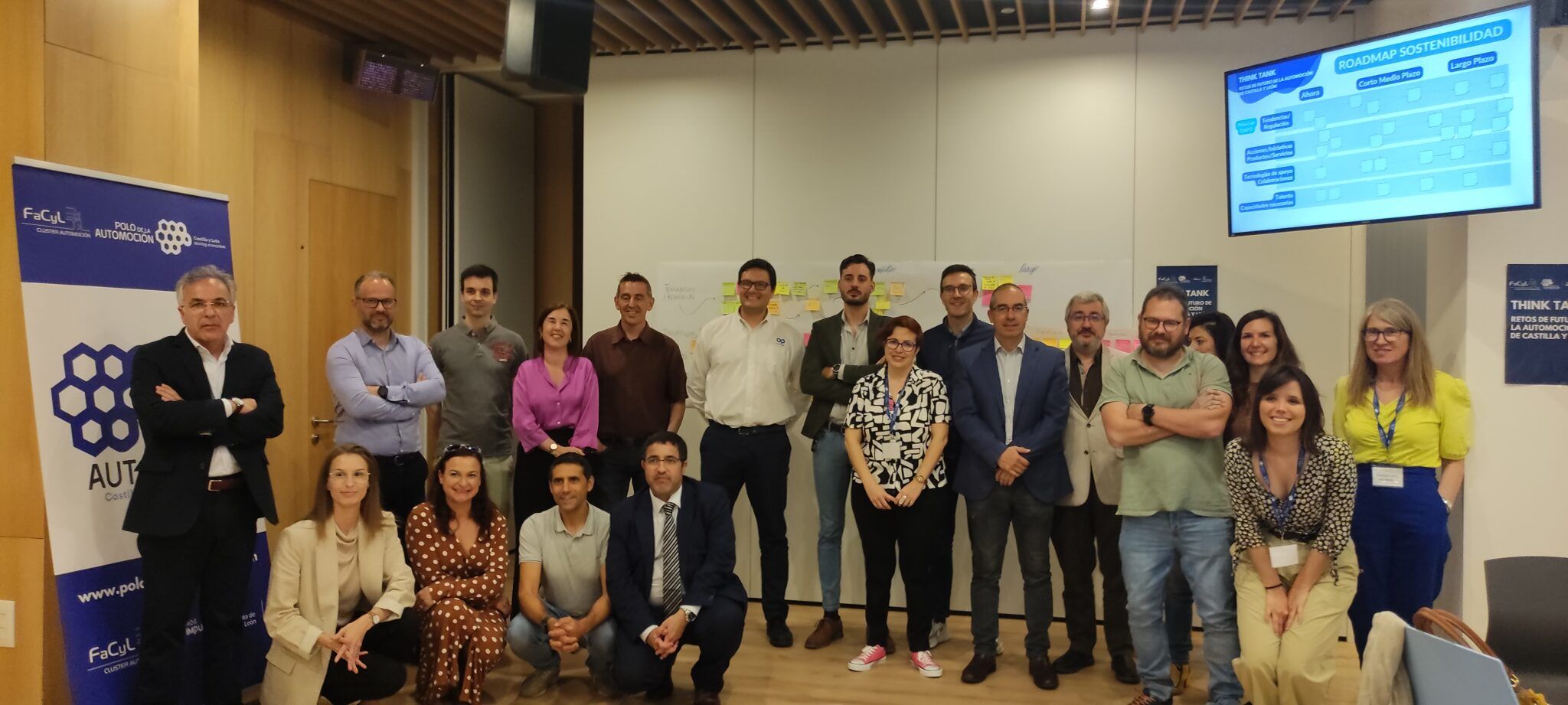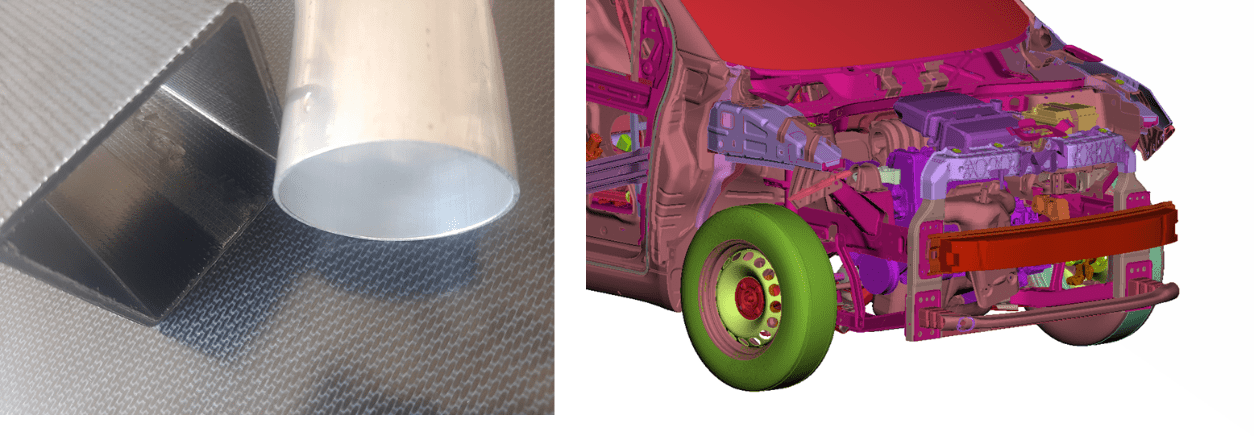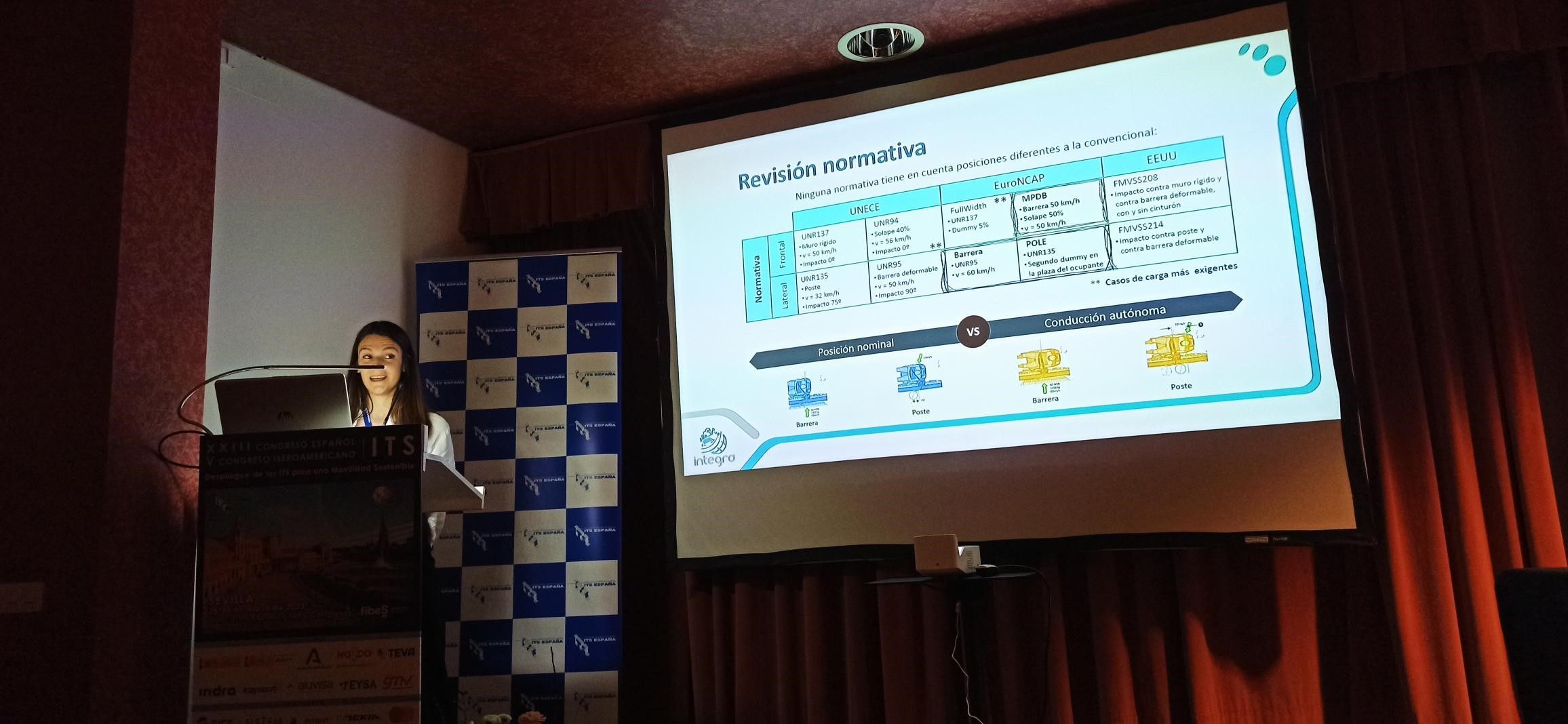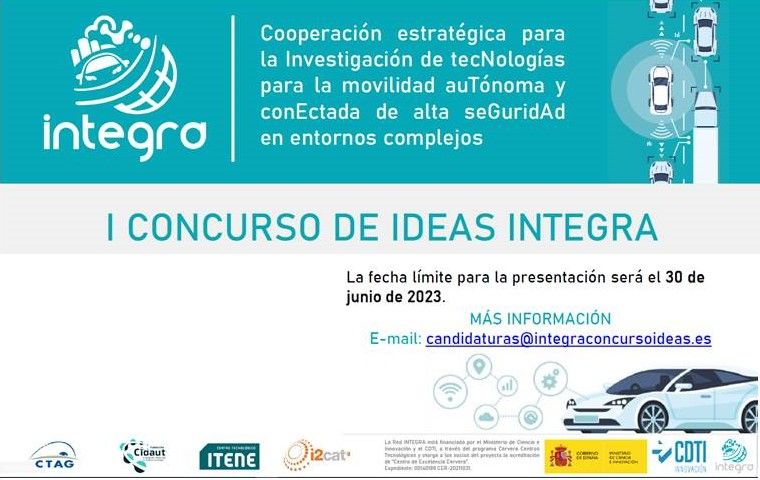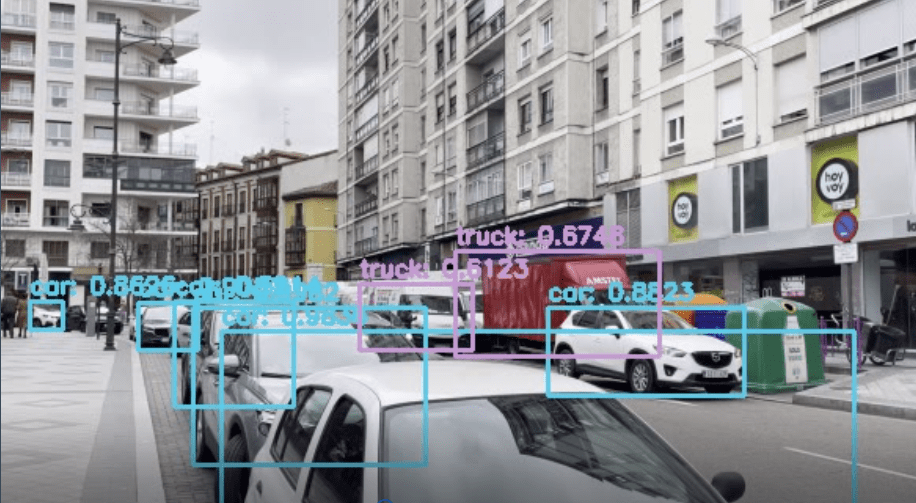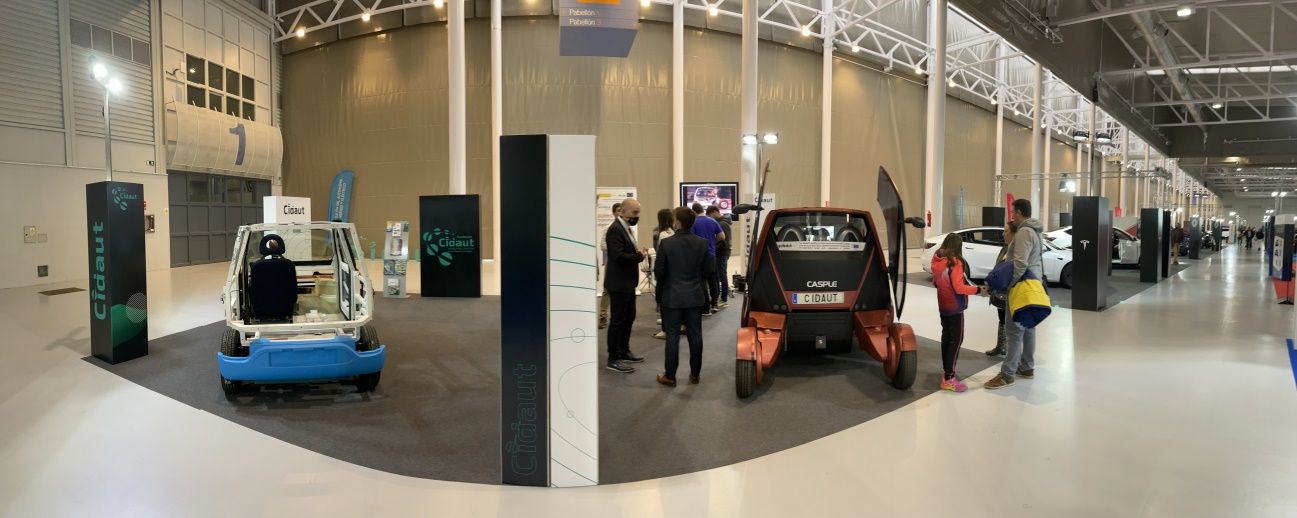by cidaut | Jul 13, 2023 | Energy, MOBILITY
The Automotive Cluster of Castilla y León, FaCyL, as part of the activities programmed by the Think Tank ‘Retos de Futuro de la Automoción de Castilla y León’ of the sectorial brand Polo de la Automoción, brought together around twenty experts on June 8. The objective was to share knowledge and develop a strategic vision on the roadmap for the sustainability of this ecosystem on the occasion of the celebration of Environment Day. This collaborative activity seeks to draw a strategic path for companies in the community in this area.
CIDAUT’s participation, led by José Ignacio Domínguez, from the Energy and Environment area, provided the vision of a technology centre with extensive experience in the automotive sector. Sustainability is one of the key lines of research, both from the point of view of the circular economy of the materials used, and from the perspective of efficiency and zero emissions from the propulsion systems of battery electric and hydrogen fuel cells vehicles. This activity provided an insight into how automotive companies in the autonomous community are facing the challenges involved in adapting to the manufacturing process of new vehicle models that are more environmentally friendly. In addition, the dynamic has also made it possible to exchange experiences on how companies see the new mobility and what actions can be developed to achieve a better understanding between all the actors involved in this challenge.
by cidaut | May 17, 2023 | Materials, MOBILITY, SAFETY
CIDAUT, together with the partners of Salient Project, is tackling the new challenges of the forthcoming connected and automated vehicles’ crashworthiness. The new skills of the connected and automated vehicles will allow to significantly reduce the number of accidents and fatalities in our roads, but the zero crashes scenario is still far away. In the meanwhile, the communication among vehicles, V2V technology, will be a useful tool to have some pieces of important information some milliseconds in advance of the crash event.
This information will allow the absorption elements of the vehicle to give an active response to the impact they are about to suffer. But to obtain this active response, a deep research and development work is needed in order to select the right material and the optimum geometry for each of the components that shape the structure of the vehicle.
At the same time, the project aims to find a sustainable solution, and attending to this is looking for recyclable light materials, as composite, aluminum or the combination of both, taking into account the whole life cycle analysis of the components and looking for circular economy compliant solutions. In order to select the most suitable material a detailed characterization campaign of different grades of composite and aluminum is being performed to know their static, dynamic, cyclic, fatigue, thermal and impact properties, which will conduct to obtaining accurate material cards to be implemented in advances software tools that will allow to optimize the geometry of the different components involved in the passive safety behavior of the automated vehicles and also to use the right material in the right position.
The research leading to this results has received funding from Horizon Europe under Grant Agreement nº 101069600
by cidaut | May 17, 2023 | MOBILITY
Last March 28th-30th, CIDAUT presented the new safety issues to consider in autonomous vehicles level 3 and 4 at the XXIII Spanish Congress and V Ibero-American Congress on Intelligent Transport Systems. In this annual meeting, where the most relevant key players from the Public Administration, Business and Academia meet to discuss the challenges of the current transport, CIDAUT exposed what means adopting new sitting postures in terms of occupant safety and how to address the inherent challenges to it. The topic was presented within the session “Integra Network: Automated and connected mobility” (March 29, from 12:00 pm), which provided an overview of the @INTEGRA project and the steps that have to be made to move towards ultra-safe fully connected and automated driving.
The lecture, entitled “Nuevos aspectos a considerar en material de seguridad en vehículos autónomos” and presented by the CIDAUT’s researches, reviewed the requirements to be met by the restraint systems in self driving cars and the expected improvement in terms of safety thanks to the deployment of these vehicles. Additionally, several solutions based on the application of intelligent transport systems were presented.
During the conference, special attention was paid to the urban scenarios and how they affect the development of self driving vehicles. Due to the fact that multiple actors coexist in these scenarios, there are still certain limitations to the proper operation of autonomous vehicles in complex urban areas; largely due to the extensive spectrum of potentially safety-critical situations. That is why there is a great deal of interest in them.
The @INTEGRA project, which was initiated at the beginning of 2021, focuses on this topic and the development of novel CCAM concepts and technologies which enable automated driving in complex areas. The project, which is funded by CDTI through Ministerio de Ciencia e Innovación in the frame of the funding for Excellence in Research Centres “Cervera”, involves four Spanish reference research centres: CTAG, CIDAUT, i2CAT and ITENE. CER – 2021 1031.
by cidaut | Mar 7, 2023 | MOBILITY, SAFETY
The F. CIDAUT participates together with 3 other technology centers (CTAG, ITENE, I2CAT) in the INTEGRA Network. This Network is financed by the Spanish Ministry of Science and Innovation and the CDTI, thought the Cervera Technological Centers program (00140188CER-20211031)
Its creation constitutes a step towards the development of local autonomous transport, which tries to optimize the movements of passengers and goods, guaranteeing the safety of users and minimizing the environmental cost.
The INTEGRA network has just launched the “I Young Researcher Competition”, with the objective to find innovative technical solutions that contribute to achieving ultra-safe autonomous and connected driving in complex urban environments.
The competition is mainly aimed at University students around the world and University graduates who have finished their studies in the last 2 years.
The prize will be unique and will consist of the publication of a scientific article with the collaboration of the INTEGRA Network. The finalists, for their part, will receive a diploma accrediting their condition.
Those interested in participating in the Competition must fill out a participation application that will include the proposal or idea in accordance with the requirements established in the Competition rules document. For more information you could visit our LinkedIn: REDINTEGRA or visit our page web: www.cidaut.es
The deadline for submission will be June 30, 2023
Send your ideas to: candidaturas@integraconcursoideas.es
by cidaut | Mar 7, 2023 | MOBILITY
CIDAUT together with Valladolid City Council is implementing several measures to make the urban transport more intelligent and sustainable. Among the measures that included connectivity solutions and decarburization of mobility, the one that we want to introduce today is the monitoring of the vehicles using the charge and discharge parking slots especially devoted to last mile applications.
The solution to be applied is based on artificial intelligence technology. The parking space will be recorded, warranting the anonymization of users’ data, and the software developed by Cidaut will be able to distinguish between passenger cars, small vans, medium vans and trucks. The algorithm has been programmed to determine if the public space is used properly, but also to measure the average time of parking attending to the typology of vehicle. The aim is to optimize the use of the urban space to improve the last mile solutions offered to the citizens.
The innovative solution will allow to obtain valuable information to better understand the level of occupancy of this kind of public space and at the same time to provide useful information to the definition and location of this kind of parking slots attending to the city needs.
The research leading to these results is receiving funding from Horizon Europe under Grant Agreement 101069782 in the frame of URBANE Project.
by cidaut | Mar 7, 2023 | MOBILITY
From 14th to 16th of April, the second edition of the Hybrid and Electric Vehicle Show will be held in Valladolid. The event will take place in Feria de Muestras de Valladolid, located at Avenida Ramón Pradera 3. Most of the most important car manufactures will be present with their latest electric and hybrid products and also mobility as a service solutions.
CIDAUT will show its latest research and development solutions for sustainable mobility and intelligent transport applications. Examples of artificial intelligence applied to last mile solutions, the presentation of an innovative electric bicycle with photovoltaic panels embedded, the role of hydrogen in the forthcoming mobility, the use of sustainable materials to reduce the weight of the vehicles and the integral safety solutions for the different levels of automated driving will be some of the technical improvements to touch and feel at CIDAUT’s booth.
Page 2 of 6«12345...»Last »
